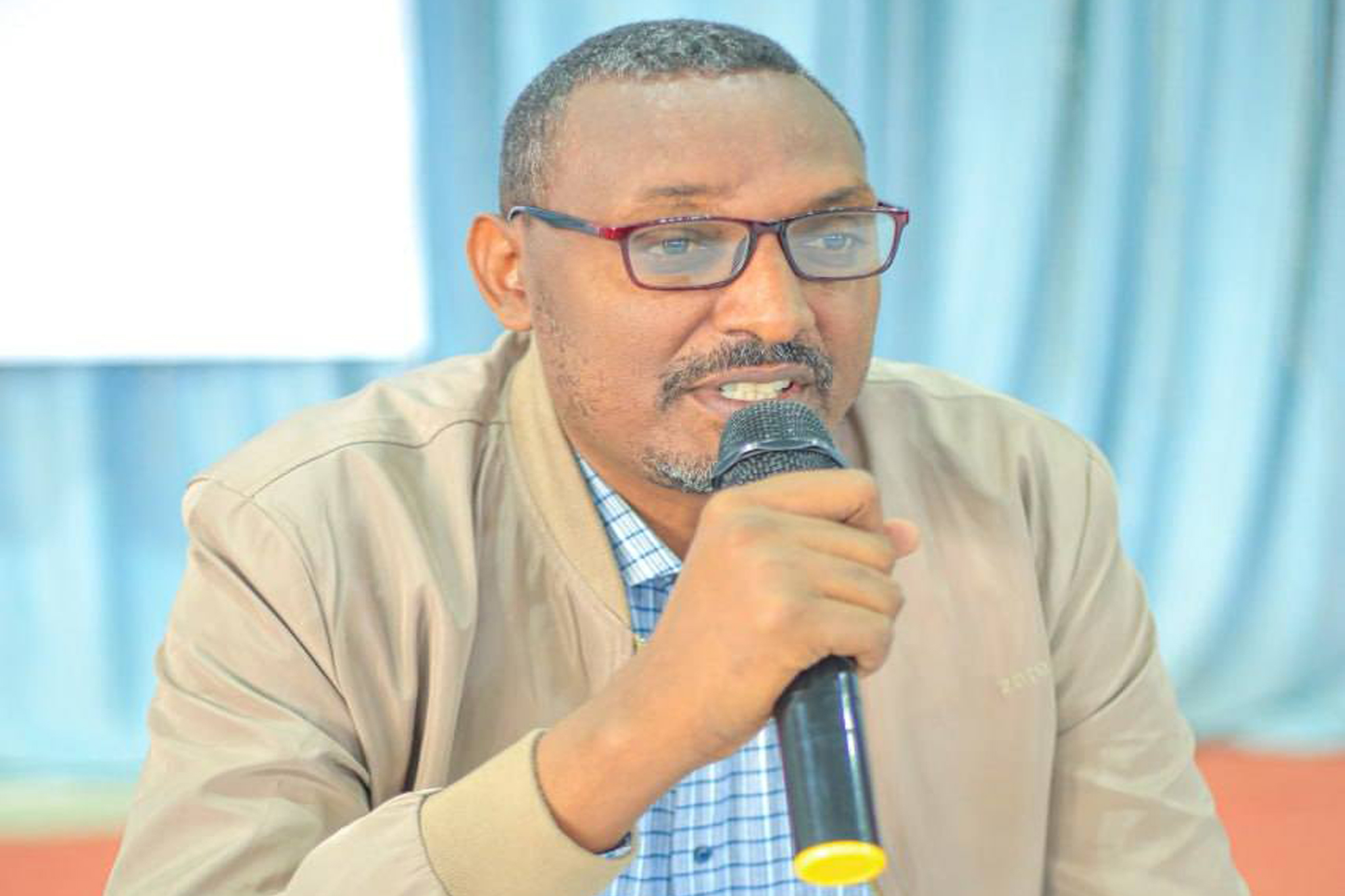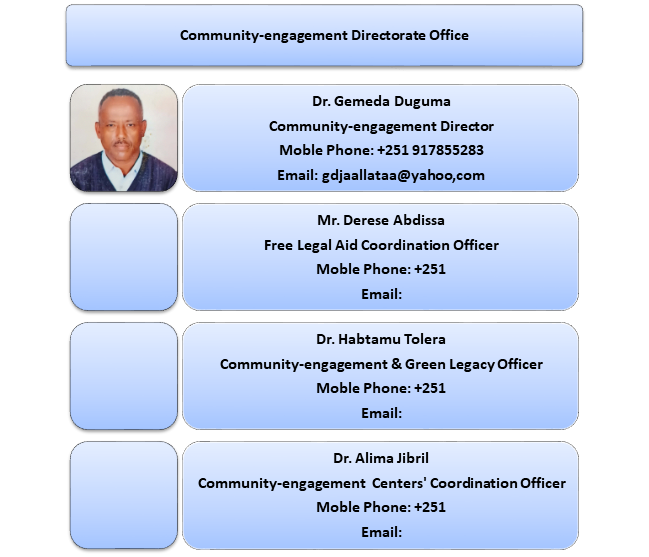 Wollega University (WU) is a public higher education institution established in February 2007 with the mission of producing skilled graduates, generating problem-solving research, and providing community services that promote national and regional development. The University extended its reach by opening Gimbi Campus in 2009 and Shambu Campus in 2010, thereby expanding access to higher education and contributing to local and national transformation. In accordance with the national reform agenda, Wollega University is designated as one of Ethiopia’s Universities of Applied Science and it’s is in a period of dynamic institutional transformation. Guided by a vision to become one of the leading Applied Science Universities in Africa, the University is committed to strengthening its practical education, research, and innovation capacity to address the socio-economic challenges of the country and the continent.
Wollega University (WU) is a public higher education institution established in February 2007 with the mission of producing skilled graduates, generating problem-solving research, and providing community services that promote national and regional development. The University extended its reach by opening Gimbi Campus in 2009 and Shambu Campus in 2010, thereby expanding access to higher education and contributing to local and national transformation. In accordance with the national reform agenda, Wollega University is designated as one of Ethiopia’s Universities of Applied Science and it’s is in a period of dynamic institutional transformation. Guided by a vision to become one of the leading Applied Science Universities in Africa, the University is committed to strengthening its practical education, research, and innovation capacity to address the socio-economic challenges of the country and the continent.
At the core of this mission lies the Office of Administrative and Development Vice President holds a key role in ensuring the University’s operational excellence, sustainability, and developmental progress. The office provides strategic leadership in planning, coordinating, and managing the University’s administrative, financial, and overall operational activities of the institutions. It ensures that all institutional resources—human, material, and financial—are effectively utilized to create an enabling environment for teaching, learning, research, innovation, and community engagements.
The Administrative and Development Vice President office oversees several major directorates and coordination offices that are central to the University’s daily operations and long-term growth. These include the Human Resource Development Directorate, Budget and Finance Directorate, Revenue Generation Coordinator Office, Student Services Dean Office, Manufacturing and Maintenance Team, Transportation and Logistics Coordinator Office, Campus Security Coordinator Office, Procurement and Property Management Directorate, and the General Services Directorate.
Beyond managing administrative efficiency, the office plays a transformative role in the University’s broader development agenda. It leads efforts to modernize systems through digital transformation, promote green campus initiatives, enhance institutional capabilities, and strengthen financial sustainability through innovative revenue-generation mechanisms. The office also works closely with academic and research wings to ensure that administrative structures directly support the University’s applied science mission and academic excellence.
Importantly, Wollega University is open and committed to collaboration with national, regional, and international organizations, including government institutions, development partners, higher education institutions, and private sector actors. Through such partnerships, the University seeks to enhance institutional capacity, share best practices, attract resources, and co-create solutions to real-world challenges. The Office of Administrative and Development Vice President mandated in facilitating and sustaining these collaborations by ensuring that the University’s infrastructure, systems, and management frameworks meet global standards of efficiency and accountability.
Olana Debel (PhD)
Administrative and Development Vice President
Background
Ethiopia's Higher Education Proclamation No. 650/2009 gives a clear picture of the political agenda and objectives that are especially pertinent to community service/engagement at higher education institutions. The proclamation highlights the importance of developing and offering community and consultancy services that will address the nation's developmental requirements with active involvement of the academic community. The proclamation aims to enhance the educational experience by fostering a culture of community involvement and encourages social responsibility among graduates.
The Community-engagement Directorate office at Wallaga University has been actively involved in offering a broad range of community-engaging events and services. The university is primarily accountable for services that meet the developmental needs of the country, but it also engaged in free legal aid and health care services. Through institutionalization and improved coordination of the university's community engagement practices, the office seeks to strengthen Wallaga University's dedication to serving the local community.
Community-Service (CS)
The Community-engagement Directorate office of Wallaga University has been offering community services to address pressing community needs as well as academic requirements. Regarding the former, the directorate office offers free legal services, child care services, artificial insemination services, and health services (for both humans and cattle). For the latter, the Community-engagement Directorate office is required to support the Developmental Team Training Program (DTTP), Team Training Practice (TTP), and service-learning (internship). They all require strong and reliable networks and relationships with other service providers or industries in order to improve academic learning and get students ready for active civic engagement. The internship, also known as service-learning, helps students master difficult courses and develop a thorough understanding of the fundamentals that will be used later. Additionally, it is crucial to disseminate and encourage research findings that have the potential to mitigate the issues facing the community.
Community-engagement (CE)
The Community-engagement Directorate office of Wallaga University has made it clear in its guideline (Community-engagement and University-Industry partnership guideline, 2018) that community-engagement (CE) is a process of working cooperatively with groups of people and stakeholders affiliated by geographic proximity, special interest, or similar situations to address issues affecting those people's wellbeing. It frequently involves partnerships and coalitions that help mobilize resources and influence systems and practices. Involving targeted communities to solve their own problems leads to development that comes from within rather than from the outside. This ensures that the progress is sustainable and gives communities a sense of ownership over the intervention program they collaboratively initiated. Universities are also required to address social corporate responsibilities like mental health, road and traffic safety, and school support.
Institutional structure
The Community-engagement Directorate office at Wallaga University is staffed by an executive secretary, three officers, and a director. The officers and an executive secretary report to the community-engagement director, who is directly overseen by the university's vice president for research and technology transfer.

